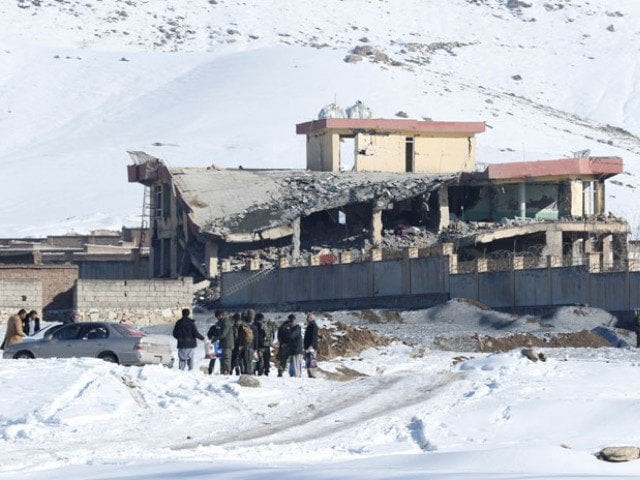Will Taliban retake Afghanistan?
Unlike the past, this time there is a genuine glimmer of hope for peace returning to Afghanistan

PHOTO: REUTERS
Both the US and the Taliban have publicly acknowledged ‘progress’ in their recent talks in Doha. They have covered considerable ground mainly on two issues (a) a clear timeline for the US troops’ withdrawal (b) Afghan soil would never be allowed as base for groups such as al Qaeda and others.
While there are renewed hopes for peace, skeptics are wary of the ongoing peace talks and fear the Taliban may retake Kabul once the US troops have left.
Their fears stemmed from the manner with which the US has shown inclination to accept the Taliban’s main demand of troops’ withdrawal, although the insurgents have so far offered little in return. Also the absence of the Afghan government from the peace process has in a way delegitimised the Kabul administration.
Rayon Crocker, who served as US ambassador to Afghanistan and Pakistan, is among those who are not happy the way the Trump administration is handling the current situation in Afghanistan.
In a recent interview with Foreign Policy, Crocker discusses why he believes the Trump administration’s reported framework deal with the Taliban is a betrayal of the “democratically-elected Afghan government” that Washington has spent nearly two decades propping up. “I think the concerns are pretty clear.
Thus far, the Afghan government has not even been at the table. And that is, of course, a core Taliban condition, but it delegitimises the government. The Taliban don’t recognise the government. They won’t deal with it. So whatever guarantees we think we’ve got, the outcome, I’m afraid, is going to be sadly different.
If we withdraw as we’re talking about in an 18-month timeline, you will simply see the Taliban move in and retake the country,” the former diplomat argued.
Afghan President Ashraf Ghani also believes that Pakistan still controls the Taliban.
The growing skepticism has prompted Zalmay Khalilzad, the US special representative for Afghanistan and Pakistan, to issue a detailed statement on Twitter, allaying fears of the Afghan government and those who think that the ongoing talks may give the Taliban licence to take charge of the Afghan affairs.
“The path to peace doesn’t often run in a straight line. The situation in Afghanistan is complex and like all sensitive talks, not everything is conducted in public,” he said.
According to Khalilzad, skeptics have rushed to judgment based on just the first part of a much larger effort, as though we have a completed agreement. “But you can’t eat an elephant in one bite! And a forty-year-old war won’t be resolved in one meeting, even if that meeting runs for close to a week.”
The Taliban have also come up with a statement insisting that they are not seeking “monopoly on power” in a future administration in Afghanistan but are looking for ways to co-exist with Afghan institutions. This is the first time an insurgent group has given a public statement showing its keenness to work with other Afghan players.
Does that mean the Taliban will share power with other Afghan groups? If they do, will other players such as the current government in Kabul sit with the insurgents? These complex questions show that Khalilzad is right that the road to peace in Afghanistan is not straight forward.
But it may be very much straight forward for the Taliban. After surviving the US military might for more than 17 years, the Taliban are holding talks from a position of strength and must have now set sights on the seat of power in Kabul.
Published in The Express Tribune, February 4th, 2019.
Like Opinion & Editorial on Facebook, follow @ETOpEd on Twitter to receive all updates on all our daily pieces.


















COMMENTS
Comments are moderated and generally will be posted if they are on-topic and not abusive.
For more information, please see our Comments FAQ